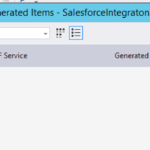Elephant in the room: Managing 24/7 support for your EDI projects
BizTalk consulting firms can increase their profitability and customer satisfaction by addressing a recurring problem that I see in BizTalk space. There is a mismatch between the end clients’ price appetite for EDI support services and the consulting firms’ cost of maintaining 24/7 EDI support services.
Some customers operate globally, and they need 24/7 support for their EDI platforms because their mission critical transactions depend on the system continuity. They have multiple time zones active throughout their operating hours and they need resources that can perform user support tasks. They want support resources to handle situations such as:
- Tracking errors in the EDI solution
- Enable/disable ports on command
- Resubmitting or terminating suspended instances
- Maintain environment uptime by monitoring BizTalk Server exceptions
- Tracking documents, looking up passwords, and accessing number failures
Having 24/7 support to fix these issues means that the consulting firm has to retain support staff that costs a lot more than the price point that the customers are willing to pay.
A major requirement in EDI projects is system continuity. Once the clients start sending invoices using your EDI solution, it becomes mission critical for them as broken instances can severely impact clients’ business processes. The role of system administrators becomes critical for the end client and customers look towards their consultants for the system continuity assurance. The support roles may fall in one of the following scenarios.
Level 1: For level 1 SLAs, the staff records the customer’s steps for reproduction and logs the issues for someone else to look at.
Level 2 & 3: Level 2 resources can provide direct technical support to customers on installations, usage, or maintenance. The staff at this level is capable of resubmitting or terminating suspended instances or to enable/disable ports on command. They are there to deliver temporary workarounds for immediate customer issues and are primarily IT generalists. Level 3 resources actually recode, patch the broken instances and deploy the new releases.
Customers usually price such support at a level that cannot be sustained by an onshore consulting firm (typically customers want to pay for a level 1 resource for the work of level II resource).
With every passing day, consulting firms are becoming increasingly conscious about the cost of delivering the 24/7 EDI support services to their customers. The major challenges (and their solutions) in delivering 24/7 support services are:
1. Customer price appetite vs. SLA expectations
Customers’ price appetite is quite low versus the service level expectation in typical EDI projects.
For instance, it is not sustainable for a consulting firm to deliver a superior 24/7 service at the price point acceptable for their customers. On the other hand, it has become very expensive for consulting firms to set-up with local resources for the EDI support roles. It also includes managing night shifts, something neither the BizTalk resources nor the consultants look forward to.
The customer’s perception is that the solution is already up and running and all that she needs is someone to take responsibility if it breaks; a fallback position at best, and customers don’t want to get charged heavily for maintaining a fallback position.
What the customer expects is to get the bugs & errors fixed in a reasonable amount of time against a reasonable price point; something like a shared service. The economics of offering a shared support service and managing periodic (but unpredictable) maintenance tasks is challenging for consultants due to the inherent intricacies of managing such a service.
It is not economically feasible for a consulting firm to dedicate the FTE (full-time employee) for the EDI support as clients are not willing to pay an FTE for the work less than an FTE. Customers may want the seat tied down but do not see the point (or value) of paying the seat in full. Let’s work some solutions that can help an onshore firm when facing this situation.
Finding resources who work when you don’t
Taking advantage from the time-zone differences can help consulting firms deliver the support services in their EDI projects. Finding the right partners is an important challenge. A good step is to:
- Start a small low-risk exercise with a trustable offshore/nearshore partner
- Adopt a split-shore model to deliver 24/7 support for EDI solutions
Using tools for Proactive support
You need a tool set to help deliver exceptional support services for BizTalk support projects. The staff should be able to log the issues when they receive the call. The more automated you can make the incident reporting system; the better it is for managing an exceptional EDI support service within the cost constraints described above. Following tools can help manage the support services.
- TFS (Team Foundation Server)
- BizTalk 360
- JIRA
These tools help flag the issues and fix the bugs and deliver a more proactive support.
Reactive monitoring
Another solution for supporting the EDI deployments is to generate weekly and monthly reports; system health checks, and provides recommendations to the customer. At level II, the support staffs do not have access to the source code; however system health issues can be communicated for further actions at the client’s end. All this can be done using the RDP (remote desktop protocol).
- Health checks | Status reports
- Recommendations
Proactive monitoring
Typically, there are issues in EDI solutions that cannot be traced easily, but they highly impact the support staff’s performance.
One of our customer’s invoices were routed through a gateway, but the issue could not be tracked due to lack of access to the gateway provider. A lack of visibility at our end prevented the support staff from routing the invoices timely. Since all communication to the gateway provider took place through the customer, it was difficult to trace the problem initially.
The important thing to remember is that it is customer’s responsibility to manage gateways, but it directly impacts the support staff’s efficiency.
The only solution is to be proactive in such issues. A lot of parties are involved, the problem is end-to-end responsibility, and the support staff needs to solve the problem from customer’s perspective. However, this may cost the end-client more than a level 2 resource.
Remote teams can use the following as a proactive monitoring guide:
- Identify cyclicality of patterns
- System cycles/business cycles causing any peak-performance impacts
- Review BizTalk-specific performance counters for BizTalk business processes, and ports and orchestration.
Some tactical steps
- Know about scheduled messages
- Ask about message load pattern
- Identify any planned new releases to production
- Make a log of frequent issue/errors that the previous team resolved
- Identify 3rd parties you need to deal with (for instance 3rd party adapters (nSoftware etc), Monitoring tool providers (Biztalk 360, IBM etc)
- Run BizTalk Documenter tool on your staging environment & ask questions related to interfaces
2. Knowledge transfer
It is a challenging task to assign a new support team on existing BizTalk solutions.
Providing the handover of an EDI project becomes even more challenging when the new team is located at a remote location. Preparing the Runbook becomes even more challenging when the previous team delivers no proper documentation (a usual case in the agile methodology).
Despite a planned on boarding/off boarding exercise, it is not always easy to transition resources as the client may have a complex EDI solution and a new resource cannot be transferred the knowledge without a sustained effort. This is where the piecemeal approach in training the context helps bridge the knowledge gap and the role of team lead becomes even more important. Three things that usually help us in these situations are:
- Training
- Designing the training sessions
- On-boarding & off-boarding (detailed help material in the complete guide)…
3. Resource retention
A major challenge for consulting firms is to retain the support staff.
Not many creative people are willing to continually work in support positions as they look forward towards assuming a development role. Onshore developers that work in .NET don’t see their future in the support role; hence they are always on the hunt to make their next career move. Firms that want to maintain a healthy employee churn rate for their BizTalk practice have to share a career path with the support staff. Onsite, offshore and near shore firms can use the following strategies to minimize employee churn.
What’s the way out?
- Develop career path for new hires
- Incentives
- Nurturing
- Shift coordination and social life issues…
Other challenges (and their solutions) include:
- Legal issues
- Document availability
- System access
- Cultural issues…






